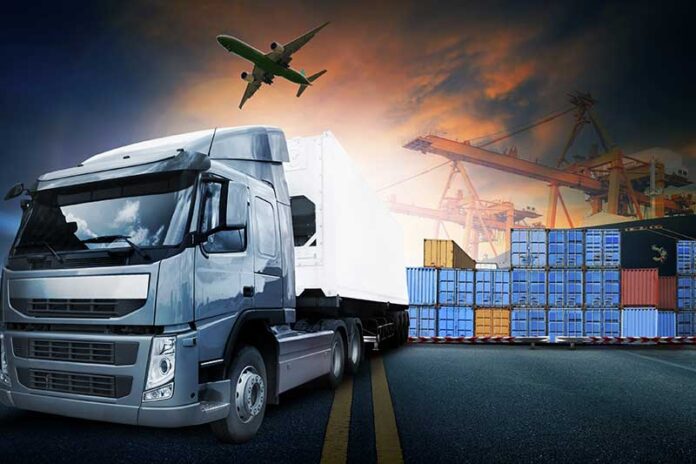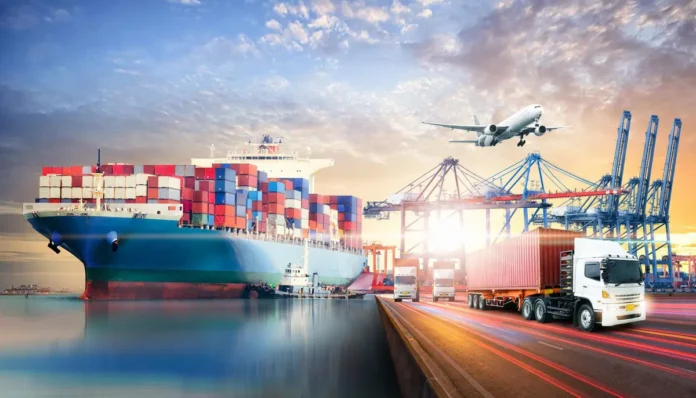There’s no denying that the world is becoming increasingly interconnected, and businesses of all sizes have unprecedented opportunities to expand their reach by going global. However, with great opportunity comes great responsibility – especially when it comes to logistics. Shipping goods across borders isn’t always easy, but mastering international logistics is essential if you want your business to thrive on a global scale.
Understanding the Basics of International Logistics

International logistics is a complex field that requires a deep understanding of various elements. It’s not just about moving goods from one place to another. It involves coordinating a multitude of activities, from sourcing raw materials and manufacturing products to warehousing, distribution, and customer service. Each of these activities must be carefully planned and executed to ensure efficiency and cost-effectiveness and there are numerous agencies like Qube Cargo that can deal with all that. Moreover, international logistics also involves dealing with different languages, currencies, and legal systems, adding another layer of complexity.
The Role of Global Supply Chains in Business Expansion
Global supply chains are the backbone of international trade. They connect businesses with their suppliers and customers across the world, enabling them to source raw materials, manufacture products, and deliver them to customers in different countries. By expanding their supply chains globally, businesses can access new markets, reduce costs through economies of scale and scope, and increase their competitiveness. However, managing global supply chains is not without challenges. It requires a deep understanding of the local market conditions, regulations, and cultural nuances, as well as the ability to coordinate activities across different time zones and languages.
Navigating International Trade Laws and Regulations
International trade laws and regulations can have a significant impact on a company’s global logistics operations. They govern everything from customs duties and import and export restrictions to documentation requirements and intellectual property rights. Non-compliance with these laws can result in hefty penalties, shipment delays, and damage to a company’s reputation. Therefore, businesses must stay abreast of the latest laws and regulations in the countries they operate and ensure that their operations are fully compliant. This often requires the assistance of legal experts and consultants.
Leveraging Technology for Efficient Global Logistics

Technology is a powerful tool that can greatly enhance the efficiency of global logistics operations. For instance, ERP systems can help businesses integrate and manage their core business processes, while TMS can help them plan, execute, and optimize their transportation operations. WMS can help them manage their warehouse operations, including inventory management, order fulfillment, and shipping.
Moreover, emerging technologies like blockchain, artificial intelligence, and IoT are revolutionizing global logistics. They provide real-time visibility into the supply chain, improve traceability, reduce errors, and enable predictive analytics, among other benefits.
Cultural Considerations in International Logistics
Cultural differences can have a profound impact on international logistics. They can influence business practices, communication styles, negotiation tactics, and consumer preferences, among other things. For instance, in some cultures, business is conducted in a formal and hierarchical manner, while in others, it’s more informal and egalitarian.
Similarly, some cultures value direct communication, while others prefer indirect communication. Understanding these cultural nuances can help businesses navigate the complexities of international logistics and build strong relationships with their international partners and customers.
Risk Management Strategies in Global Supply Chains

Global supply chains are fraught with risks. These can range from natural disasters and political instability to trade disputes and cyber threats. Such risks can disrupt logistics operations, cause financial losses, and damage a company’s reputation. Therefore, businesses must implement robust risk management strategies to mitigate these risks. This can involve diversifying their supply sources to avoid over-reliance on a single supplier, maintaining safety stocks to buffer against supply disruptions, investing in supply chain visibility tools to detect and respond to risks in real time, and developing contingency plans to ensure business continuity in the face of disruptions.
Building Strong Relationships with International Partners
Building strong relationships with international partners is crucial for successful global logistics. These partners can provide valuable local knowledge, help navigate cultural differences, and mitigate risks. They can also offer specialized services and capabilities that can enhance a company’s logistics operations. Therefore, businesses should invest time and effort in building and maintaining these relationships. This can involve regular communication, mutual respect, transparency, and collaboration.
Sustainability and Ethics in Global Logistics

In today’s world, sustainability and ethics are no longer optional; they are a business imperative. Consumers are increasingly demanding that businesses take responsibility for their environmental and social impacts. Similarly, regulators are tightening the rules on sustainability and ethics.
Therefore, businesses must strive to minimize their environmental footprint, ensure fair labor practices, and maintain ethical business practices. This can involve reducing waste, optimizing energy use, sourcing materials responsibly, treating workers fairly, and being transparent with stakeholders. By doing so, businesses can not only protect the planet and people but also enhance their brand reputation, customer loyalty, and long-term profitability.
Case Studies: Successful International Logistics Strategies
There are many examples of companies that have successfully mastered international logistics and achieved significant business growth. For instance, Amazon has built a robust global logistics network that enables it to deliver products to customers worldwide quickly and efficiently. It has leveraged technology to automate its warehouse operations, optimize its delivery routes, and provide real-time tracking of shipments.
Similarly, Apple has managed to source components from various countries and assemble its products in a cost-effective manner. It has built strong relationships with its suppliers, invested in quality control, and implemented strict compliance procedures. These case studies provide valuable insights and lessons for other businesses looking to expand globally.
Conclusion
International logistics is a complex and often daunting undertaking, however, when done successfully it has the potential to open up a world of growth opportunities for businesses of all sizes. By taking into account factors such as local customs regulations and shipping timelines, businesses can ensure that their goods reach their customers safely and on time. With the right knowledge and resources, mastering international logistics can help your business unlock global success.









